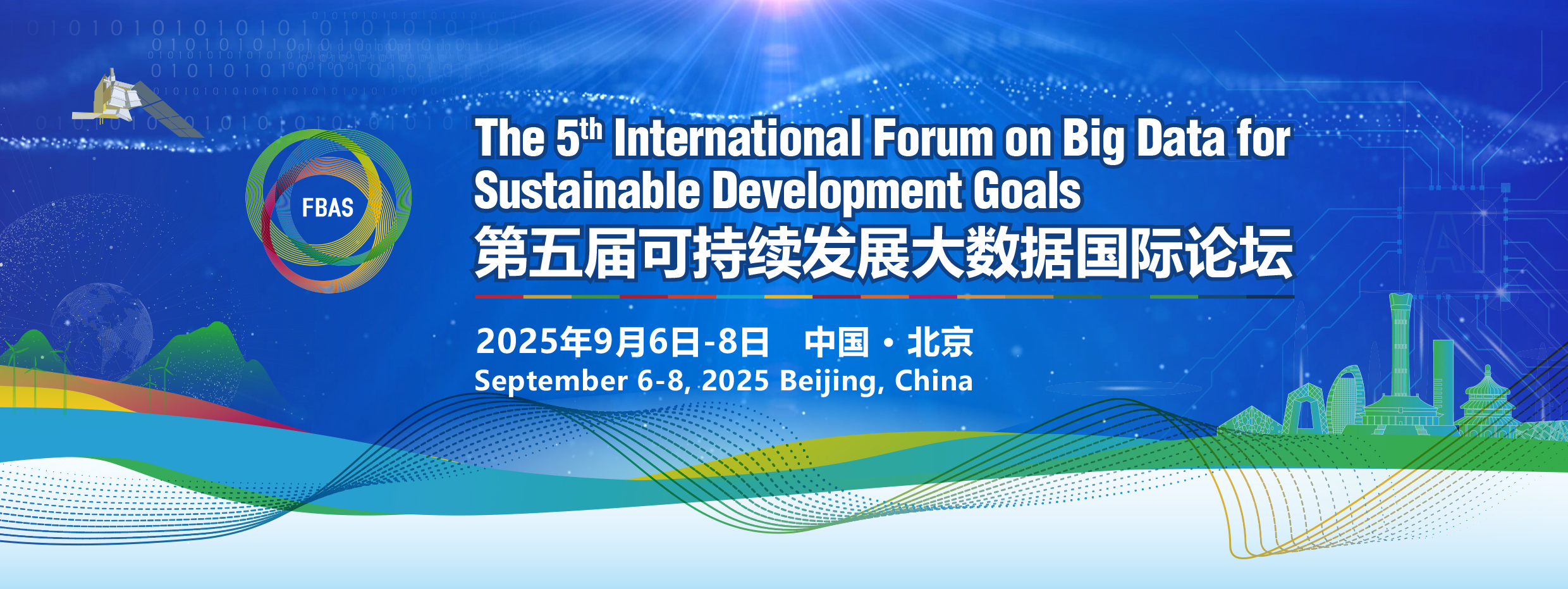The year 2025 marks the 10th anniversary of the United Nations' 2030 Agenda for Sustainable Development and is a pivotal year for the global efforts towards the Sustainable Development Goals (SDGs). Over the past decade, while the international community has made important progress in areas such as eradicating extreme poverty and transitioning to clean energy, challenges like intensified climate change, drastic biodiversity loss, and food security crises continue to escalate. The latest United Nations assessment reveals that nearly 40% of the measurable SDGs are still off track, with some goals experiencing systemic regression due to compounded crises. Faced with this common challenge that concerns the fate of humanity, we need more than ever to anchor ourselves in science and set sail with big data, to foster collaborative scientific actions that transcend national and disciplinary boundaries.
The integration of big data and artificial intelligence provides an invaluable tool to facilitate global efforts to achieve sustainable development. Digital technologies not only dynamically monitor progress towards goals and precisely identify bottlenecks but also provide innovative solutions for complex issues such as climate resilience, ecological protection, and energy transition through interdisciplinary information integration and intelligent analysis. Over the past 5 years, the International Forum on Big Data for Sustainable Development Goals (FBAS) has been committed to building a global collaborative scientific platform that promotes the sharing, innovation, and policy coordination of digital technologies, while facilitating the transformation of big data from an information resource to a governance paradigm.
On the 10th anniversary of the 2030 Agenda and 5th anniversary of the FBAS forum, the 5th International Forum on Big Data for Sustainable Development Goals will be held in Beijing from September 6 to 8, 2025. The theme of forum "Digital Intelligence Driving Sustainable Development: The 10th Anniversary of the 2030 Agenda," will define the focus of the event towards use of digital and AI technologies to address zero hunger, clean water and sanitation, affordable and clean energy, sustainable cities and communities, climate action, life below water, life on land, and integration and intersection among SDGs. It will feature discussions on several topics, such as leveraging big data services to achieve sustainable development goals, harnessing AI to empower global sustainable development, exploring policy guidance and digital intelligence industry to drive regional sustainable development, fostering global partnerships to accelerate progress towards sustainable development goals, and encouraging youth innovation to co-creating a sustainable future.
With less than five years remaining until 2030, every technological breakthrough, policy dialogue, and experience-sharing can provide a significant advantage in reducing current lags in the SDG targets.
To this end, we sincerely invite scientists, policymakers, business leaders, and representatives of social organizations from around the world to gather in Beijing during the FBAS 2025. Let us share our wisdom, spark innovative thinking, and forge alliances for action, together drawing up a global roadmap for digital intelligence-driven sustainable development.
Let us reflect on the past decade as a mirror and take the last five years as a milestone, and move forward together in collaboration to launch the "sprint action" for the 2030 Agenda. Only by working together today can we achieve shared prosperity tomorrow.




